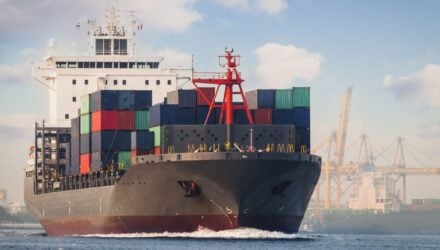
Martin Brown, MD at Fleet Alliance
Headlines announcing the dramatic decline of the company car are both negative and misleading. So says leading fleet management and leasing provider, Fleet Alliance, which believes that a desire for sensationalism is masking the currently stable state of the company car market.
The company car remains the second most reported benefit in kind following private health care and the most valuable. It is currently worth £4,750m in taxable revenue and a further £630 million in employer National Insurance Contributions.
The number of company car drivers remains constant, too, at 940,000 having fluctuated between 940,000 and 950,000 since the 2010-11 tax year.
The current statistics for benefits in kind were announced by HMRC at the end of June and cover the taxable BIK recorded on P11D returns for the 2016-17.
However, provisional estimates for 2018-19 suggest the number of company car recipients may drop by 50,000 to 890,000.
While this number sounds significant, HMRC stated in an explanatory paragraph that: “Figures for 2016-17 and 2017-18 do not include any estimate of the impact of voluntary payrolling. Initial HMRC analysis suggests that this accounts for a significant proportion of the decline in reported numbers.”
Voluntary payrolling was introduced in 2016 to ease the reporting burden of benefit in kind (BIK) for a host of benefits, with employers moving away from submitting P11D returns to collecting tax on company cars through payroll.
This changed from 2017-18, when employers were able to provide more detailed data about the cars being provided through their FPS (Full Payment Submission). But, HMRC says that providing this data was not mandatory until 2018-19.
HMRC said that this had “implications for the longer-term viability of these statistics,” but added that it was working on a way to reconcile voluntary payrolling with its current P11D statistics for the 2019/20 tax year.
Martin Brown, Managing Director of the Fleet Alliance Group, commented: “It’s important that the media takes a balanced view of such important statistical information.
“The number of company cars has remained consistent despite repeated stories about its demise and the talking up of alternatives that sidestep benefit in kind company car tax.
“It should be remembered that the 940,000 company car recipients pay an average of £1,650 each into the Treasury’s Exchequer and contribute positively to funding welfare, health, pensions and education in the UK.”
Mr Brown added that uncertainty over future taxation, the demonisation of diesels and current unavailability of ultra-low emission vehicles had all had destablising influences on company car decision-making.
“Nevertheless, HMRC statistics suggest the company car remains a stable benefit, a fact reflected in our own managed fleet which has grown during the year to 37,000 vehicles worth £1 billion. We believe the company car will continue to play a significant role as we move towards greater electrified vehicle availability,” he said.
Fleet Alliance Group has seen a surge in its managed fleet from 25,000 to 37,000 vehicles in less than a year. During the same period, the Group has arranged funding worth £160 million for around 8,000 new cars in the SME and fleet market.






